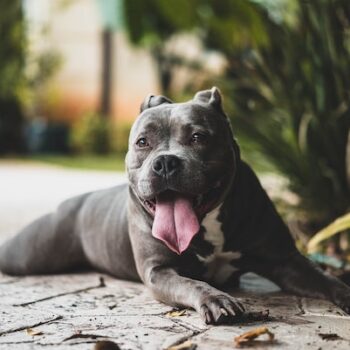Ann Dunn has been director of Oakland Animal Services (OAS) for about 17 months now. When the opportunity to join the Human Animal Support Services presented itself, it was a no-brainer. On a recent Shelter and Rescue Support call in April, Dunn shared why OAS joined the initiative, what her biggest takeaways have been thus far and what she thinks the future holds.
Why join Human Animal Support Services?
When she first started, the shelter was used to operating very reactionary for many years and Dunn has since made headway in changing that. She shared that there had also been extensive gentrification in the city. “The city demographics have changed a lot and we’ve seen the number of people living on the street has grown and continues to grow,” Dunn said. This added to a list of serious challenges both within the city and inside the shelter walls.
Having volunteered at OAS since 2009 and worked in public housing for over 20 years before she got into animal welfare, Dunn has always looked at OAS as a human services organization, but it didn’t operate in that way.
“Looking at the deep inequities in animal welfare, one of the things from my starting point was always like, why are we making this so hard? There’s so many animals that need homes,” she said. “Why is the bar so high? Why are we literally taking pets and then having to use all of these resources to house and re-home them? Why aren’t we supporting people in keeping their pets?”
She continued, “When I heard the goals for HASS, what I heard was ‘let’s face this head on and look at our history in animal welfare and what we’ve done wrong…. We can never get past it we if we won’t face it.” Dunn shared that being able to see it through a different lens meant instead of seeing neglect, we see good people who don’t have the resources. “Having the love of an animal shouldn’t be a privilege. This was the opportunity for a do over,” Dunn explained.
And while OAS didn’t really have any kind of foundation for innovation, Dunn wasn’t going to miss this opportunity.
“Of course, I wouldn’t have made the decision without consulting with everybody here. What excited me and made me realize ‘we can do this,’ is that to [the staff] it was obvious that we could actually help people and do the right thing,” she shared.
Biggest takeaways being part of HASS
Much to Dunn’s surprise, a biggest takeaway was how easy it’s been to make the changes. “When operating in such a reactionary mode, we spend so much time just pushing a rock up a hill,” she noted. One example was realizing how much easier it is to keep animals out of the shelter than it is to rehome them once they’re there.
“I anticipated, especially for the animal control officers – and not because of who they are, as people, but because of how that system is operated and that it’s so rigid – that they would have the hardest time making the shift. But at this point, they’re the biggest advocates for the changes we’ve made because they are able to do good, and it feels good to do good,” Dunn said.
Dunn continued, “Think about how dehumanizing the way that we’ve operated and how you have to keep people at arm’s length to deny them justice. So, to be able to actually help is good for the staff, as well as the people we serve. It just feels right – it is right – and so it’s so much easier to do that than to do the harder stuff.”
What does the future look like?
There’s no going back, says Dunn, especially since the rise of the social justice movement.
“I think that the future is more community serving programming and thinking about the shelter as a human services organization. It’s about being in the community, reaching people before they’re in crisis and shifting resources. The more animals we keep out of the shelter, the more community serving programming we can do; the more animals we keep out the shelter. It’s getting to a place where those resources are locked in the community and the shelter is really just our home base.”
Dunn concluded, “To see how much has changed in just a single year, it just feels like there’s so much more possibility. As our community sees us operating differently, people are thrilled and so they’re going to support that. It’s just going to continue to grow and improve.”

